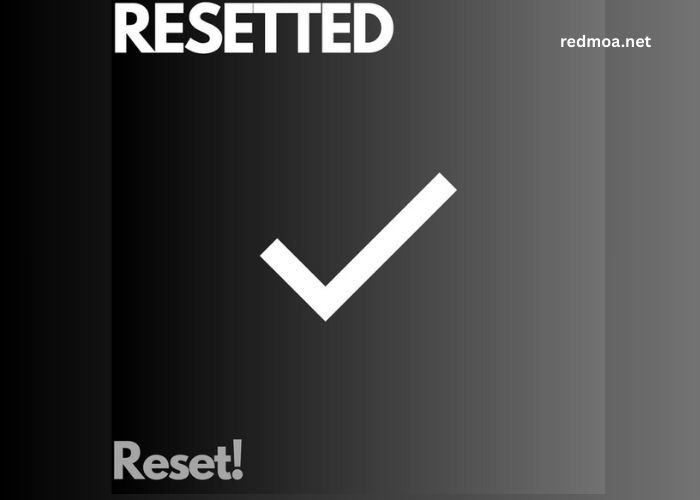When we talk about the verb “reset,” many people mistakenly use “resetted” as its simple past form. However, the use of “resetted” has stirred confusion among learners of English grammar. So, what is the correct way to use “resetted” and how does it compare to the standard “reset”? In this blog, we’ll dive into everything you need to know about “resetted” as the simple past of “reset,” how to use it correctly, and why it’s a controversial subject in grammar.
Understanding verb forms is crucial to mastering English, especially when it comes to irregular verbs. “Reset” is one such irregular verb that doesn’t follow the usual pattern of changing forms in the past tense. While many might think that “resetted” is simply the past form of “reset,” it turns out that it’s a commonly debated topic. By the end of this article, you’ll have a solid understanding of when and why “resetted” may or may not be appropriate in your writing and speech.
Key Points:
- “Resetted” is often used mistakenly, but it’s not the standard form of “reset.”
- The past tense of “reset” is traditionally “reset,” not “resetted.”
- Understanding verb forms like “reset” will improve your grammar skills.
What Is The Correct Past Form of “Reset”?
To understand the issue with “resetted,” we first need to establish the correct past tense of the verb “reset.” The verb “reset” is an irregular verb, meaning it doesn’t follow the common pattern of adding “-ed” to form its past tense.
The simple past form of “reset” is, in fact, “reset” itself. This is an example of a verb where the present, past, and past participle forms are all the same. It’s important to remember that “reset” does not change when we use it in the past tense.
For example:
- Present: I will reset the computer.
- Past: Yesterday, I reset the computer.
- Past Participle: The computer has reset itself.
As you can see, the past form “reset” is consistent, whether you are talking about the present or the past. There’s no need to use “resetted,” even though it is commonly heard in casual speech.
Note: “Resetted” is often a mistake, but it is still widely used, especially in informal contexts. However, it is not considered correct in standard English grammar.
Why Do People Use “Resetted” Instead of “Reset”?
The question remains: Why do people say “resetted” when the past form is actually “reset”? There are a few reasons behind this phenomenon, especially in casual or colloquial settings.
First, it’s worth noting that many learners of English, especially non-native speakers, tend to apply regular grammar rules to irregular verbs. In most cases, to form the past tense, you simply add “-ed” to the verb. So, it’s understandable that someone might mistakenly think that “resetted” is the proper form of “reset.”
Second, some speakers may be influenced by regional dialects or informal speech, where the use of “resetted” is more common. It’s often heard in everyday conversation, even though it’s not technically correct according to the rules of standard English.
Another reason could be the evolution of language. Language constantly changes over time, and in some cases, non-standard forms can eventually gain acceptance, although this doesn’t mean they are universally correct.
What Are The Differences Between “Reset” and “Resetted”?
Now that we know the correct form of “reset,” it’s essential to understand the distinction between “reset” and “resetted” in more detail.
| Verb Form | Correct Use | Explanation |
| Reset | “I will reset the system.” | This is the correct form for both the past and present tense. |
| Resetted | “I resetted the system.” | Incorrect. “Resetted” is not standard, though it’s heard in some informal contexts. |
In the above comparison, you can see that “reset” is used in all cases, regardless of tense. “Resetted” is incorrect according to standard grammar rules and should be avoided in writing, though it may appear in casual speech.
It’s important to note that even though “resetted” is not technically correct, it is still widely used in spoken English, especially in informal conversations. If you want to use proper grammar, always opt for “reset” as the past form.
Reminder: When in doubt, use “reset” for the past tense instead of “resetted.” It’s the grammatically correct form in both written and spoken English.
How To Use “Reset” Correctly In Sentences?
Now that we’ve established the past tense form of “reset,” let’s take a closer look at how to use it in sentences correctly. Here are a few examples:
Example 1: Talking About Past Actions
- Correct: “I reset the alarm because it was going off.”
- Incorrect: “I resetted the alarm.”
Example 2: Referring to Past Experiences or Events
- Correct: “They reset the password after forgetting it.”
- Incorrect: “They resetted the password.”
Example 3: Describing Ongoing or Completed Actions
- Correct: “The system has reset multiple times this week.”
- Incorrect: “The system has resetted multiple times this week.”
As you can see from these examples, “reset” remains the same no matter what tense or situation you are referring to.
When Is It Okay to Use “Resetted”?
While “resetted” is technically incorrect in formal writing, it might appear in informal speech or creative works. Some people might use “resetted” in writing for stylistic purposes or to reflect how people actually speak. However, this is rare and not advisable for formal contexts such as academic writing, business communication, or professional settings.
If you’re writing for a general audience or want to make sure your language is standard, always use “reset” as the past tense form.
Conclusion
To sum up, “resetted” is an incorrect form of the verb “reset,” and its use should be avoided in formal English. The correct form of the past tense of “reset” is simply “reset,” whether you’re speaking or writing. While “resetted” is heard in casual speech, it doesn’t conform to standard grammar rules.
By understanding the correct use of irregular verbs like “reset,” you can improve your grammar and ensure clarity in communication. Remember, language is constantly evolving, but it’s always important to adhere to grammatical standards when it comes to professional or academic writing. Stick with “reset” for both the past tense and past participle, and you’ll avoid the common mistake of using “resetted.”
FAQ’s
- Is “resetted” a valid word?
No, “resetted” is not considered grammatically correct. The correct past tense of “reset” is simply “reset.” - Why do people say “resetted” instead of “reset”?
People often use “resetted” because they apply regular grammar rules to irregular verbs, and because of regional or informal speech patterns. - Can I use “resetted” in casual speech?
While “resetted” may be heard in casual speech, it’s better to use “reset” in both formal and informal contexts. - Are there any other irregular verbs like “reset”?
Yes, other irregular verbs, such as “put” (past tense: “put”) or “cut” (past tense: “cut”), also do not change in the past tense. - How can I remember to use “reset” correctly?
A simple way to remember is to think of “reset” as a word that doesn’t change in the past tense, much like other irregular verbs such as “put” or “cut.”





